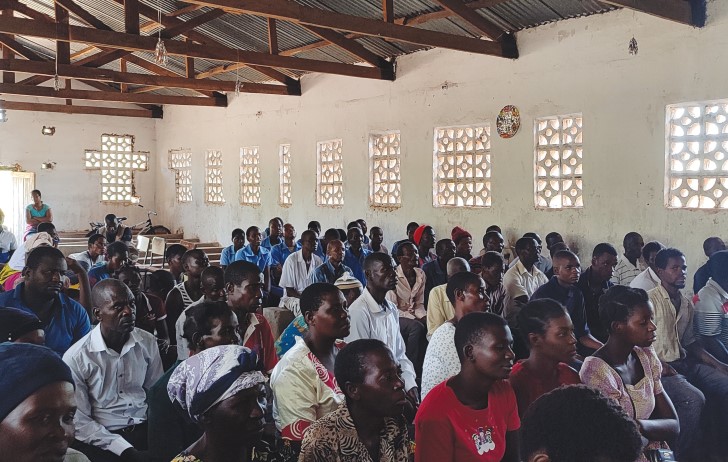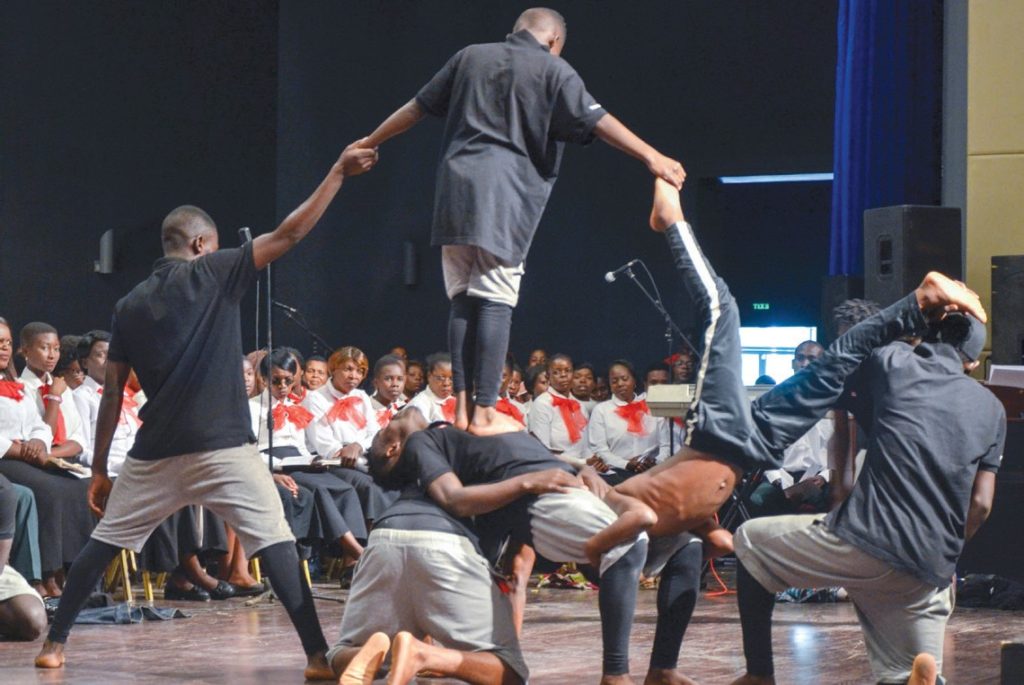This year, just over half of the Malawi School Certificate of Education (MSCE) candidates passed the national examinations.
According to the Malawi National Examinations Board (Maneb), 83 846 passed while 70 286 failed. This represents a four percent decline from last year’s 58.4 percent.
Community members discuss Chivumbe CDSS’ woes in national examinations
However, 60 percent of candidates in community day secondary schools (CDSSs) failed compared to a meagre 18 percent in conventional schools.
Maneb executive director Dorothy Nampota also lamented that six CDSSs—Phembe in Mzimba and Chaboli in Mzimba, Mbongozi in Kasungu and Chivumbe in Blantyre—registered zero percent in 2022.
This moved some Chivumbe CDSS alumni and surrounding community to conduct an open stock-take.
They convened school’s board of directors and management committee, Blantyre North legislator Francis Phiso, ward councillors, traditional leaders, parents, teachers, students and community development committees.
They identified lack of essential teaching and learning materials as a major cause for the low perch.
Alumnus Ronald Mbewe said the crisis points to a graver problem that deserves attention by many stakeholders, including the Ministry of Education.
“Actually, out of the six worst performing schools nationwide, Chivumbe CDSS is at the bottom because students face many barriers to quality basic education,” he said.
The school has just a single classroom block that accommodates dozens of students from forms One to Four.
There are eight teachers who travel long distances every day to get to class. Six of them are qualified.
Many rural schools in Malawi often lack crucial resources such as skilled teachers, well-equipped classrooms, libraries and laboratories.
This makes it difficult for candidates to compete favourable with better-off urban schools in national examinations.
Ronald Utila learned at the rural school opened in 2002.
He says Chivumbe CDSS has been neglected by the government.
He stated: “Having passed through this school, we’ve to investigate how we can reverse this downward trend.
“Over 20 years since the school was opened, it still does not have staff houses and new classrooms despite the booming student population. The only blocks here were constructed in 1998 for the primary and junior secondary school.”
The school also lacks a library, textbooks, science laboratories, teachers’ houses, toilets and change rooms for adolescent girls.
This fuels absenteeism and dropout rates, teachers say.
The dilapidated classroom blocks suffered gaping cracks during Cyclone Freddy in March this year. The death traps were shut down, further reducing the number of classrooms.”
The stakeholders engaged the Foundation for Community Livelihood and Development (Focold) to conduct the scorecard at Chivumbe CDSS.
Facold programmes officer Sam Bwanali says it was hard for children to perform wonders given the challenges identified during the postmortem.
For instance, most teachers report for work late and too tired due since they stay far away.
Besides, the stakeholders are concerned that CDSSs are viewed as dumping sites for mphwepwa (failures or underperformers) from primary schools.
“We are told that the best performers in Standard Eight are selected for national secondary schools, but unsuccessful ones go to CDSSs. If they do well there, they are sent to good schools, leaving behind slow learners.
“So, CDSS teachers, who are mostly undertrained, face the hard labour of attempting to mould these rejected students from Form One to Four even without necessary teaching and learning materials.
“This is why most CDSSs have failed to pass students,” lamented a teacher who sought anonymity.
Chivumbe CDSS started 21 years ago as a junior CDSS with Form One and Two, but gradually expanded to Form Four in 2019 when half of the 10 students who wrote MSCE failed.
But in 2020, only six of the 33 MSCE candidates passed, representing 18 percent.
Only two of 18 MSCE candidates passed in 2021, a drop to 11 percent.
The pass rate further dipped to six percent in 2022 when six of 31 candidates passed MSCE examinations.
This year, all the 13 candidates failed.
Legislator Phiso says all is not lost.
He hopes the brainstorming sessions will help fix the situation, turn the tables and create an enabling environment for learners.
He said: “Parents, teachers, learners, office-bearers and the Ministry of Education all have roles to play to promote education. Finger-pointing hinders problem-solving. Everyone should accept that we did not do well and let us work together to fix the problems.”
Some teachers blamed parents’ indifference to children’s education and adult literacy.
Group village head Malenga urged community leaders to jointly ensure that their children have the necessary teaching and learning materials.
“We are committed to finding solutions to the problems that led to this disaster,” says Mbewe.
The post Zero pass rate haunts CDSS appeared first on The Nation Online.
 Moni Malawi
Moni Malawi 

